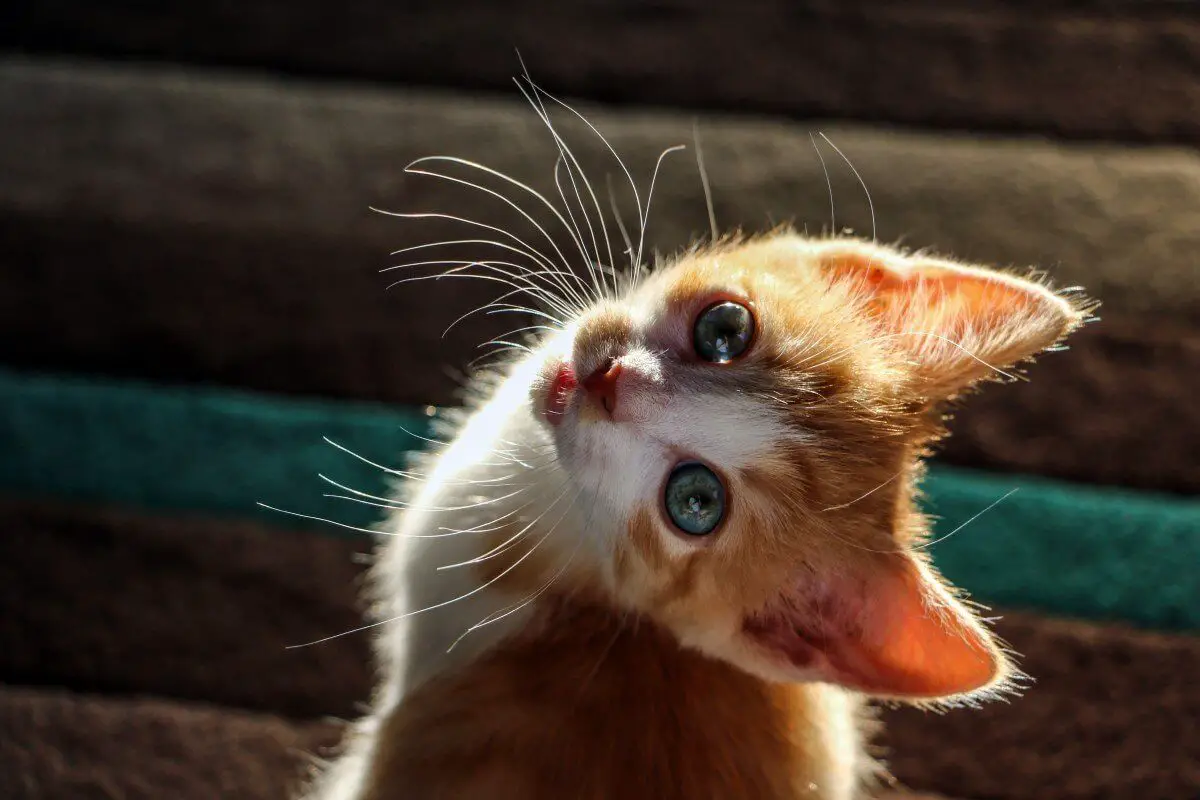A cat can make quite a few harmless or sometimes alarming noises: sometimes it hisses, sometimes it coughs or sneezes, sometimes it chokes. When the house tiger suddenly starts panting, it breathes unevenly, quickly, and superficially with its mouth open. Panting in dogs is typical behavior, especially when playing. Cats typically breathe through their noses about 20-25 breaths per minute. If a cat is panting suddenly, it can have harmless or dangerous causes. We present various causes and treatment options.
What Does It Mean If My Cat is Panting?
- In the summer, a cat can pant because of the warm temperatures.
- After a strenuous hunt or a long game with a member of the same species, cats occasionally pant and twitch a lot.
- The panting can be a sign of psychological stress in the kitty.
- If the cat panted for no reason as a result of low exertion, it may have heart disease.
Recognize Whether the Kitty is Breathing or Panting Quickly

Breathing quickly does not automatically mean that the cat is panting. If the chest rises and falls in steady breaths, you can assume normal breathing. When panting, the breathing rate is greatly increased. Then the cat only breathes superficially. Your abdominal wall expands less when you breathe, and your chest doesn’t sag too much. It is unmistakable evidence when the cat draws air through its mouth instead of breathing through its nose. If the cat just breathes too quickly, you can tell by a closed mouth. Nevertheless, caution is advised with the so-called tachypnea. The breathing rate is increased, similar to panting, and is beyond 40 breaths per minute.
Harmless Causes of Cat Panting
As soon as a cat gasps for breath, it puts its owners on alert. But the animal is not automatically seriously ill. There are different life situations in which a cat gasps for air more intensely.
Long-lasting summer heat
The summer temperatures of over 25 degrees Celsius are not only troublesome for the human body. The four-legged friends also have to struggle with the heatwave and are looking for cool places. The summer is particularly stressful for the long-haired cats, as they sweat under their long fur. Then it is perfectly normal for the cat to pant with its tongue out. In this way, she tries to regulate her body temperature. In contrast to humans, the puss has no other option in summer. Your sweat glands are only on your paws.
Tip: Provide the velvet paw with enough freshwater. Provide a shady place (basement, tiled floor, or other cool room) where the kitty can rest. If she is panting and cleaning herself in a shady spot, there is no need to worry. In this way, the kitty tries to moisten her fur with her saliva. As a result, she cools her body down.
After playing with conspecifics
A young, playful cat feels comfortable with its fellow cats. Older cats are also not averse to frolic around sometimes. Often they overexert themselves and then pant after playing wildly with other four-legged friends. As soon as the kitty calms down, her breathing will also become more even and slower.
Before or after the birth
Birth is exhausting for every animal. The mother cat tightens her abdominal muscles at birth. The puppies can then be pressed out of the body in the birth canal. This process takes a lot of strength for the adult female puss. So it is by no means unusual for the animal to pant more intensely before or after birth. You don’t have to worry if your breathing slowly returns to normal afterward.
More Serious Reasons: See a Vet?
If your fur nose is suddenly panting for no reason, this indicates a serious illness. If she is also exhausted and has no appetite, there is no avoiding a visit to the vet. A vet visit is also required if the cat is panting and drooling. In this case, your saliva will no longer drain and it will enter the airways. This happens either through a foreign body or because of buildup in the airways.
Heart disease
With some diseases, panting can be the first symptom. This is also the case with what is known as hypertrophic cardiomyopathy. Pedigree cats are often affected by these heart diseases. The blood flows to and from the heart only slowly through a thickened heart muscle. Therefore, even with a little exertion, the cat will pant. The serious illness must be treated by a doctor. The cat panted with an overactive thyroid. An enlarged thyroid causes the hormonal balance in humans and animals to be mixed up. The heart rate is increased and the body itself is constantly restless and on “alert”. Hyperthyroidism affects many cats. The fast heartbeat makes it harder for the kitty to breathe. In the case of an overactive thyroid, there are usually additional symptoms. If you notice the following signs in your darling, a veterinarian should be consulted:
- The kitty is losing weight despite having a normal or even increased appetite.
- The cat has diarrhea or is panting and throwing up.
- The animal’s coat looks dull or shaggy.
- The animal appears confused or stressed.
Peritonitis
Feline Infectious Peritonitis, which is virally transmitted, is a serious disease. It is difficult to diagnose and can be fatal if it is not recognized. In young cats, in particular, there is a great risk that the disease will be fatal. Infected cats tend to pant and have diarrhea. Fluid collects in the cat’s stomach, which is why the stomach looks bloated. Furthermore, your sick darling is losing weight, is tired, and has a high fever.
Note: Although there is no 100% protection, you can get your cat vaccinated against FIP.
How to React When Your Cat is Panting
In most cases, there is no need to panic to the vet if you pant. It is advisable to first observe the cat carefully. For example, if the cat is panting after being outdoors, it is most likely out of breath from the romping around. But even after several hours of operation under anesthesia, the cat sometimes panted in the wake-up phase. However, you should react quickly if the kitty suddenly panted and breathed quickly. If the animal takes more than 60 breaths per minute, it is an emergency. Then, for example, a foreign body can be stuck in the throat. But even after an insect bite, the cat can react allergically and start panting. You can provide first aid by staying calm and immediately placing an ice pack on the cat’s neck. Then bring the kitty quickly to the doctor in a sturdy transport box.
